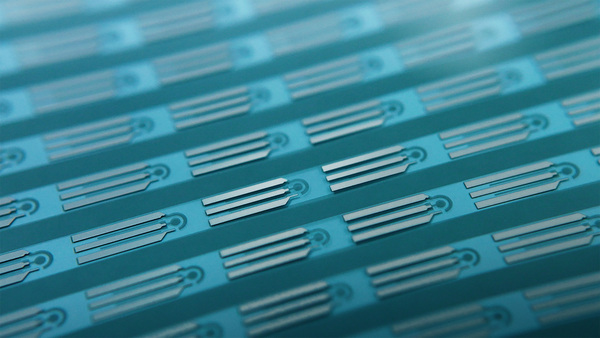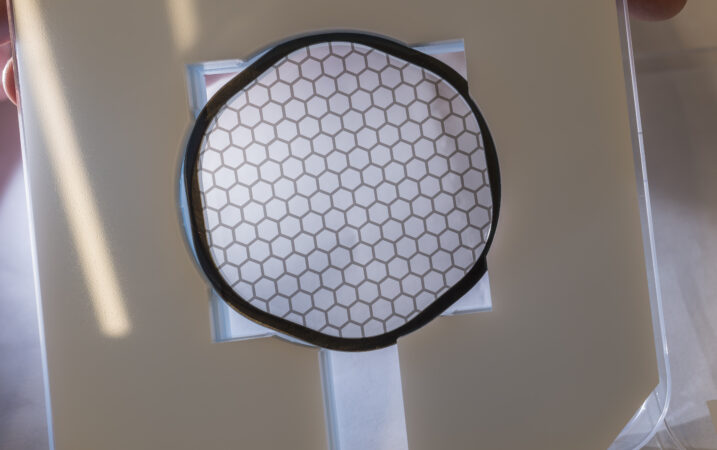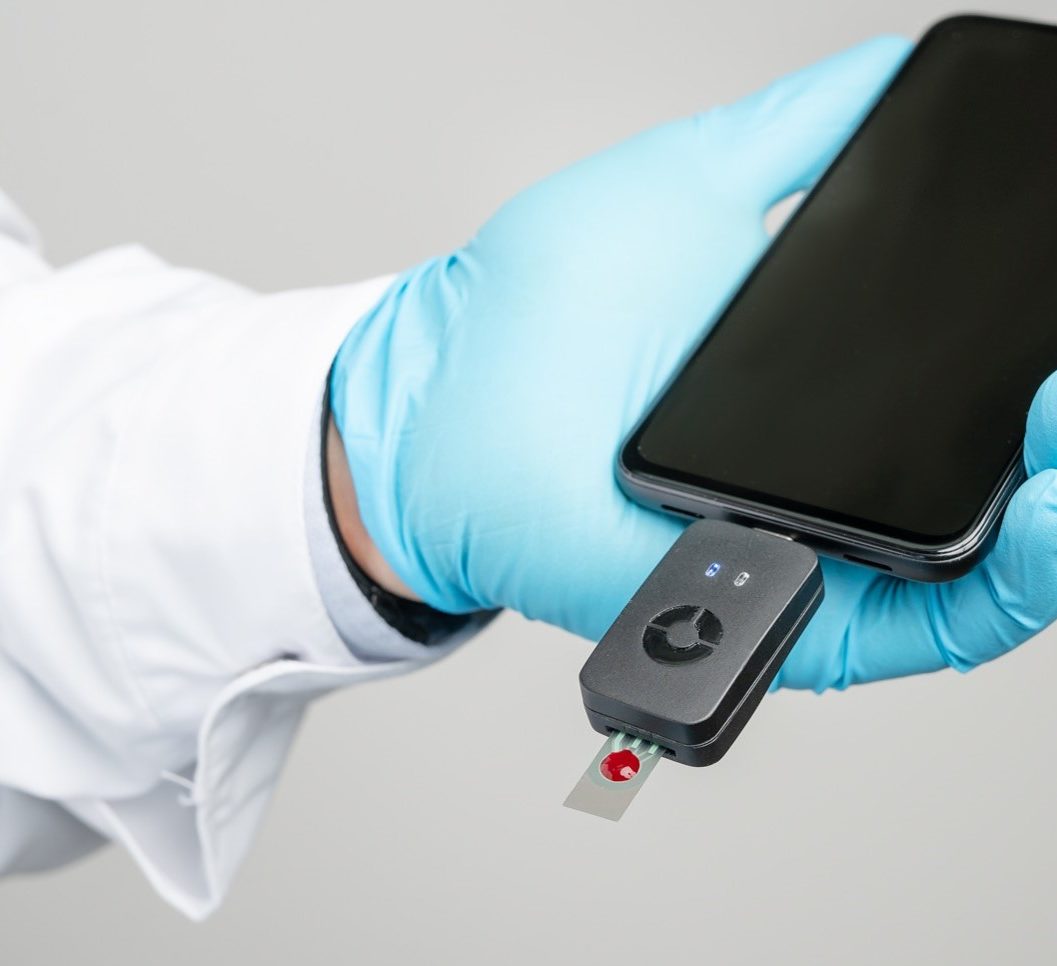
Electrochemical biosensors
Electrochemical biosensors using Canatu CNT provide >10-fold increased sensitivity in in vitro matrices. Exceptional sensitivity unlocks unpresented detection capabilities for new assays.
Electrochemical biosensors for point-of-care analysis
Electrochemical biosensors using Canatu CNT provides > 10-fold increased sensitivity in in vitro matrices. Superior sensitivity is made possible by our patented dry deposition™ technology yielding the most advanced carbon nanotubes (Canatu CNTs) with incredibly extensive and pristine reaction surface area. This enormous, three-dimensional surface provides many binding sites for biorecognition elements to interact with target analytes, enabling stronger signals event in complex matrices. Exceptional sensitivity unlocks unprecedented detection capabilities for new assays. Furthermore, severe infections and diseases, like cancer, can now be detected at an early stage, saving lives and money.
Key benefits
- Sensitive: >10x higher sensitivity in an in vitro matrix
- Versatile: platform technology for detecting any analyte of interest
- At scale: capacity to produce tens of millions of sensors annually
Watch video on electrochemical biosensors
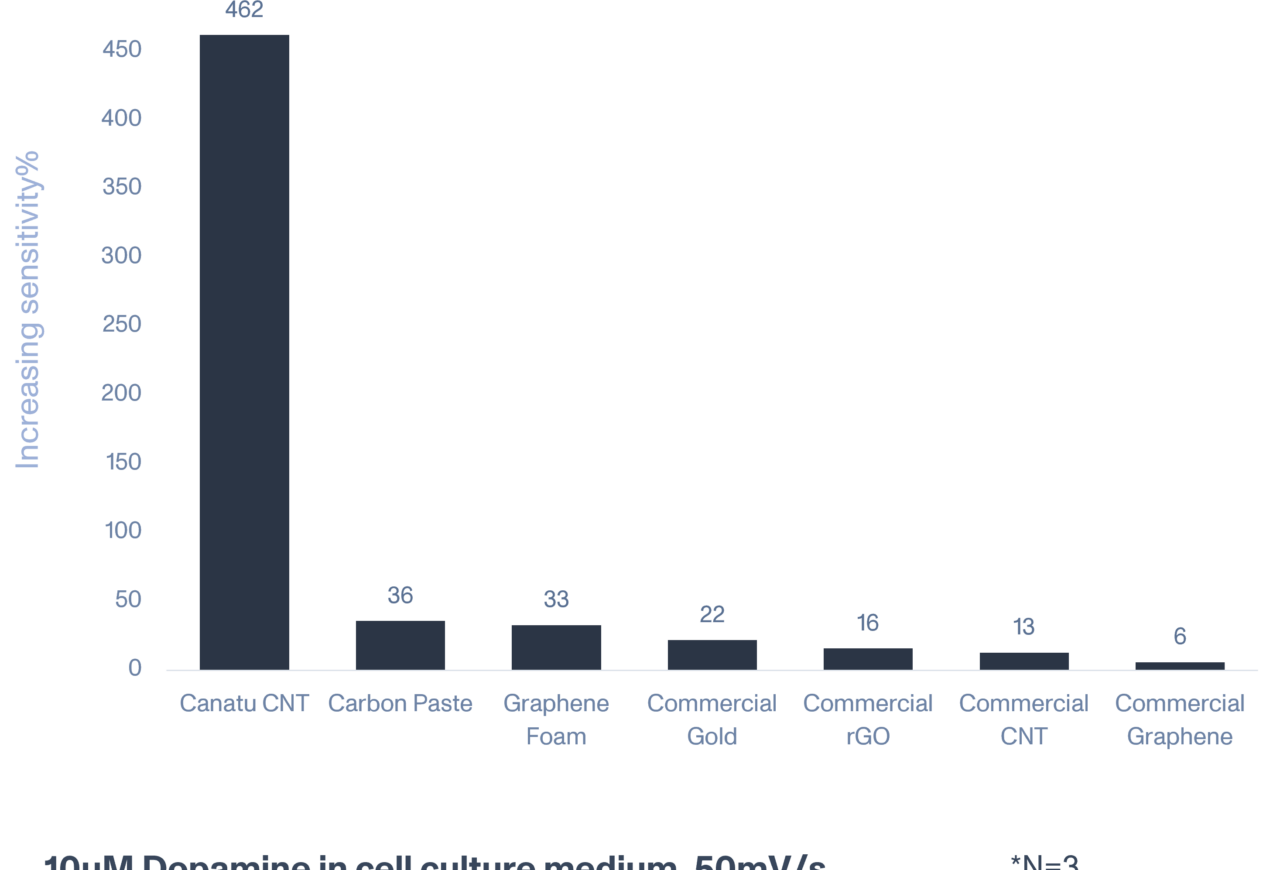
Over 10x higher sensitivity
Canatu CNT offers the highest sensitivity outside a lab; over ten times more sensitive than anything our competitors can offer. Proven in in vitro matrices, this superior sensitivity enables unprecedented detection capabilities for new assays. It’s achieved through our patented dry deposition™ technology, which allows us to produce carbon nanotubes with uniquely large and pristine reaction surfaces.
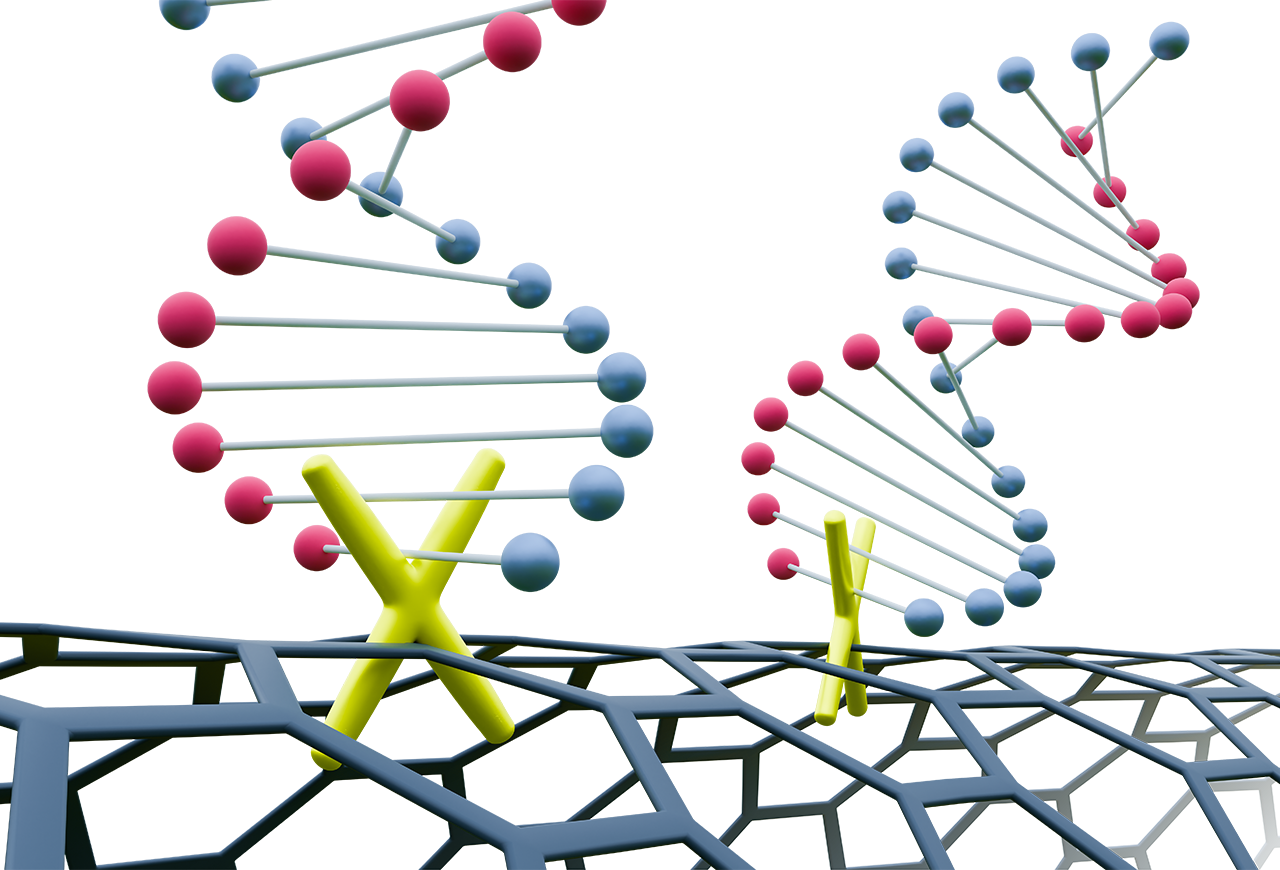
Versatile platform technology
Our proprietary click chemistry enables the immobilization of any biorecognition element, including antibodies, DNAs, enzymes, and aptamers, making it a versatile platform technology for detecting any analyte of interest. This offers an unprecedented opportunity to detect severe diseases and infections at their earliest stages. Canatu has, for example, demonstrated pre-metastatic cancer detection by analyzing circulating tumor DNA from small blood samples at the point of care.

At scale
Canatu has the experience and expertise to produce tens of millions of sensors every year. Our patented dry deposition method and electrode patterning process are fully compatible with roll-to-roll production and have been successfully demonstrated at an industrial scale. We have been mass producing our sensors for multiple industries since 2015.
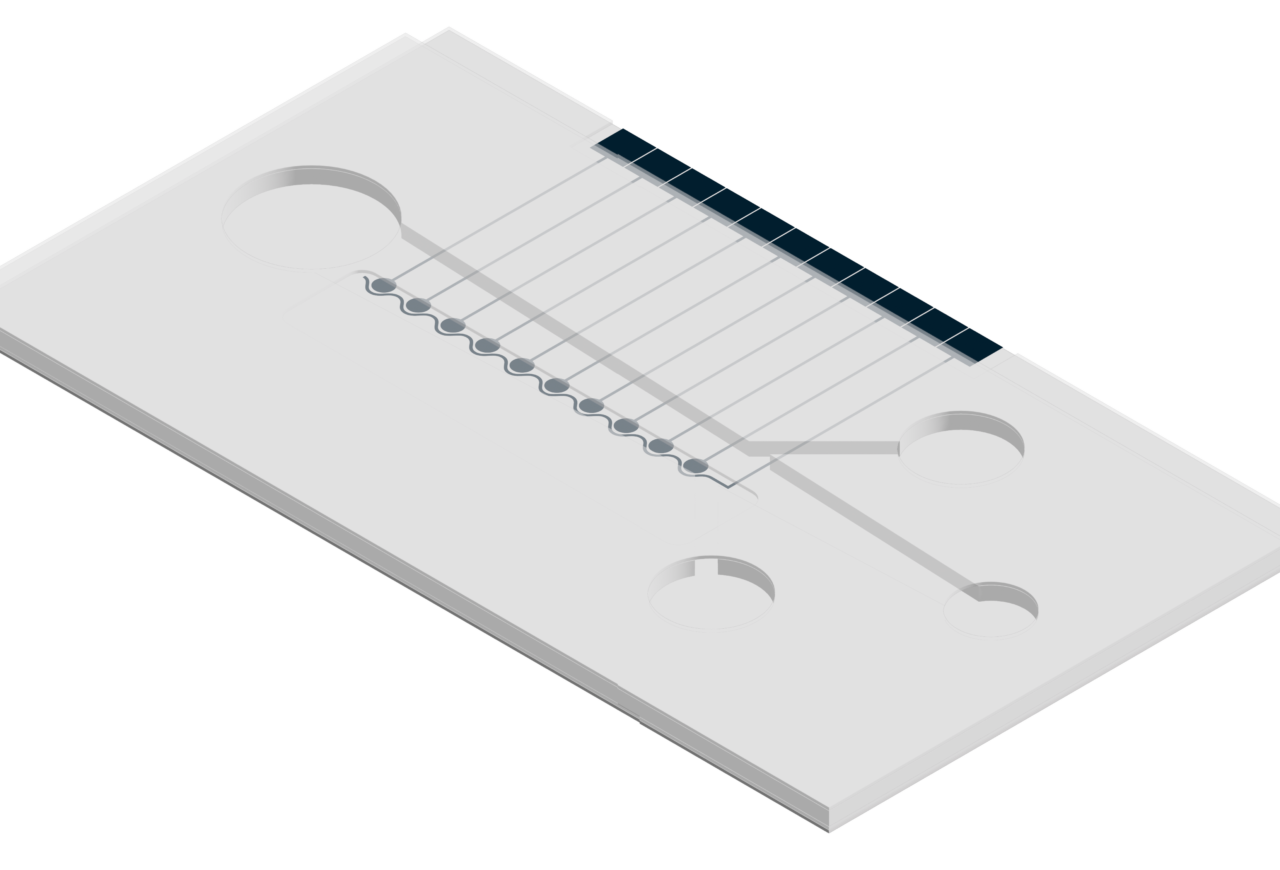
Lab on a chip
Simultaneous testing of multiple biomarkers from a single sample is now possible. These analytes can include DNA mutations, pathogens, hormones, and drug molecules. These microfluidic chips offer high sensitivity, portability, and the capability to perform complex analyses with minimal sample consumption. Multiplex assays can be customized at any design to recognize different target analytes with the same sample.
Download technical data
We are looking to partner with frontrunners ready to transform medical diagnostics at the point of care. Download technical data to explore our capabilities further.
Download technical data
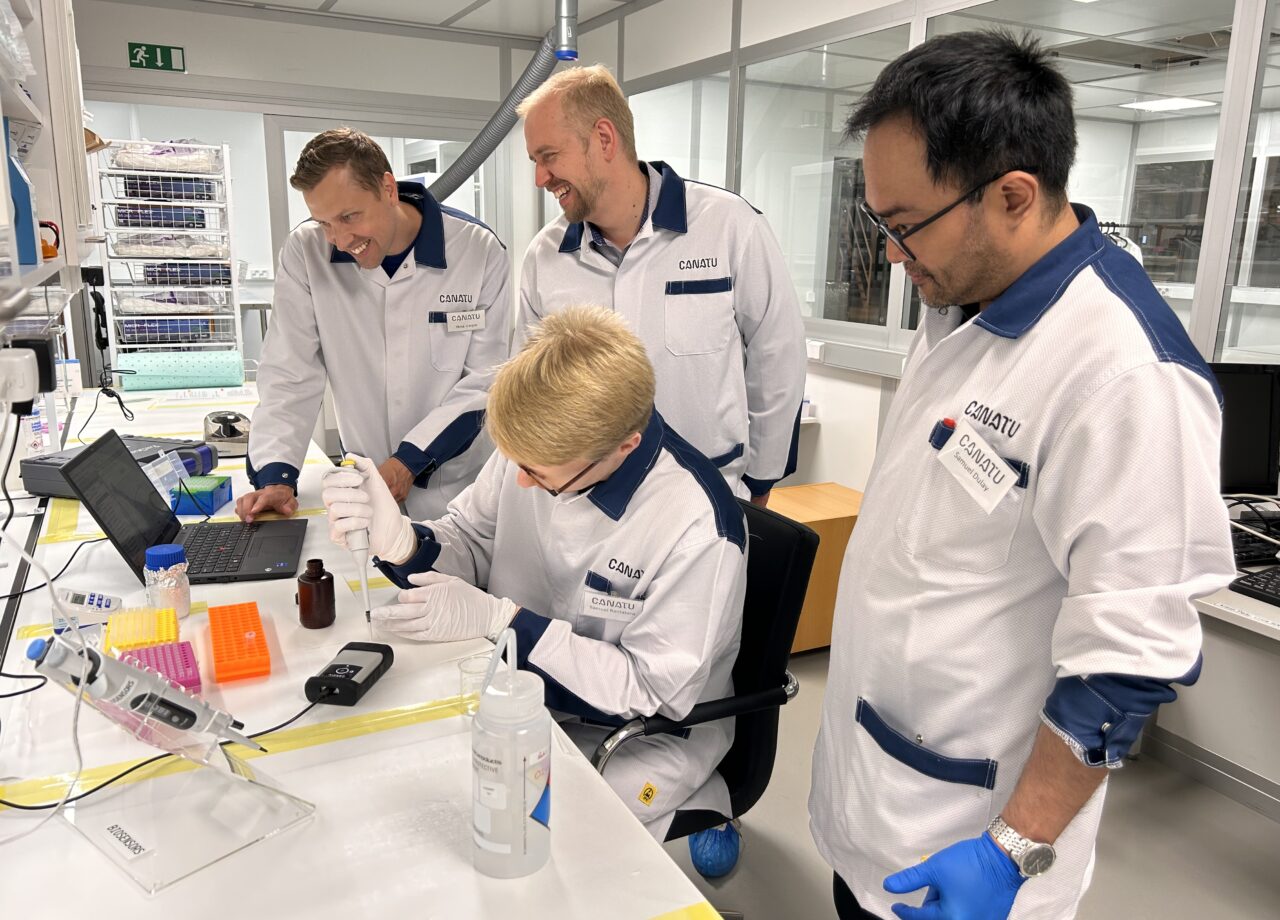
Latest research
Canatu has nearly a decade of experience in vitro research. Peer-reviewed references serve as valuable resources for professionals keen on understanding our technology and capabilities. Discover an overview of our latest and most notable publications.
Versatile platform technology for detecting any analyte of interest
Canatu’s proprietary click chemistry enables the immobilization of biorecognition elements, including antibodies, DNAs, enzymes, and aptamers, making it a versatile platform technology for detecting any analyte of interest, such as pathogens, hormones, DNA mutations, and drug molecules. Canatu has, for example, demonstrated pre-metastatic cancer detection by analyzing circulating tumor DNA from extremely small blood samples right at the point-of-care.
Multiple disease-specific biomarkers can be tested simultaneously from a small blood sample, enabling rapid results and better patient care.
Exceptionally sensitive electrochemical biosensors
Electrochemical biosensor functions by converting biochemical events into electrical signals. At its core is the electrode, providing stable support for immobilizing biomolecules and facilitating electron movement. Carbon nanotubes stand out as ideal electrodes, thanks to their large and pristine surface area, providing many binding sites for the analytes.
Electrochemical biosensors using Canatu CNT offer more than a 10-fold increase in sensitivity in in vitro matrices. This heightened sensitivity is made possible through our patented dry deposition technology, which produces CNTs with exceptionally pristine and large surface areas. To illustrate this, just one gram of Canatu CNTs boasts a surface area equivalent to that of a soccer field. Large surface provides many binding sites for biorecognition elements to attach with the target analytes. Moreover, the unique three-dimensional carbon structure of CNTs enables robust and reliable attachment of biorecognition elements, resulting in stronger signals even within complex matrices.
Unprecedented sensitivity enables new assays and allows for the early detection of severe diseases and infections, even before their onset.
Our patented click chemistry provides a versatile platform technology for detecting any analyte of interest, including DNA mutations, pathogens, hormones, and drug molecules, offering a unique opportunity to diagnose severe diseases, like cancer, or infections at their earliest stages, saving lives and money.
Employing biorecognition elements like DNAs, antibodies, aptamers, and enzymes, click chemistry immobilizes electrodes to specific target analytes, generating electrical signals processed by an electronic system.
Canatu has demonstrated point-of-care molecular diagnostics for early cancer detection by analyzing circulating tumor DNA at extremely low concentrations.
Canatu has the expertise to produce tens of millions of sensors annually. Our patented dry deposition method and electrode patterning process are fully compatible with roll-to-roll production, demonstrated successfully on an industrial scale mass production since 2015. We excel in tailoring our CNTs to meet application-specific requirements. We have extensive experience on post-processing our CNTs, including surface functionalization to immobilize biorecognition elements to enable selectivity for particular target analytes. We have high control of the whole process, and can adjust both individual CNTs and the overall CNT network morphology.
The inherently large specific surface area, high electrical conductivity, and tailorable surface chemistry make Canatu CNT an ideal electrode for electrochemical biosensors, offering industry-leading sensitivity.
Electrochemical biosensors for detecting painkiller concentrations
Canatu has collaborated with leading Finnish universities and Helsinki University Hospital to develop electrode strips for point-of-care measurements of painkiller concentrations. In this partnership, test strips capable of quantitatively detecting painkillers, including paracetamol and opioids, have been created. Given the widespread misuse of these medications, they are common causes of poisoning.
The developed test strips utilize the highly sensitive and repeatable Canatu CNT electrode platform, ensuring a high signal-to-noise ratio. These test strips have been demonstrated in three early clinical studies, including the clinical validation of a test strip designed to measure paracetamol (acetaminophen) concentrations from small finger-prick blood samples.
Contact our specialist in electrochemical biosensors
Send us a message
We are looking for a partner for product development and commercialization. If you’re interested in exploring this opportunity further, contact our CTO Ilkka Varjos.
Related content
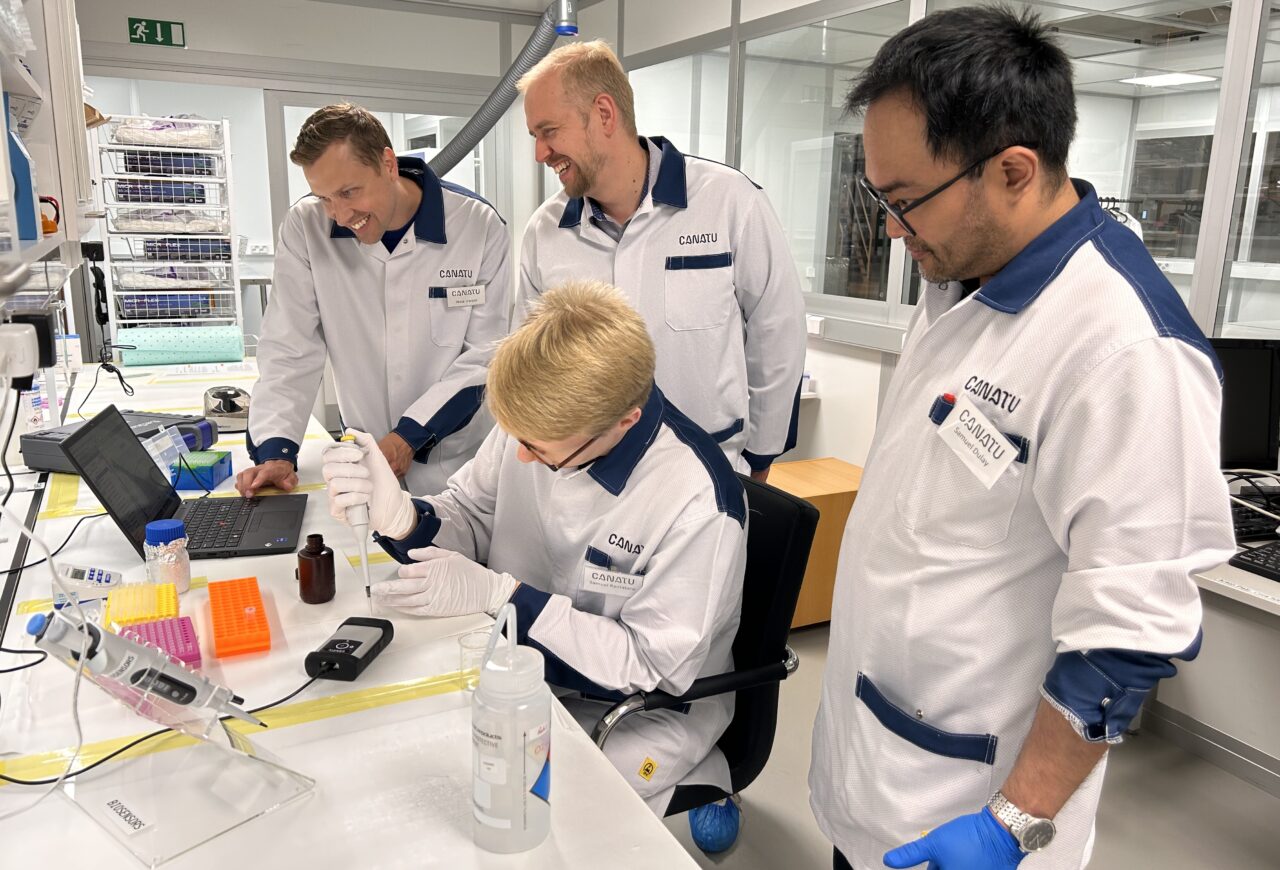
While our experts solve the issues of today, they are also working on what’s to come. Currently, our technology for electrochemical sensors is developing fast. Because of the exceptional purity of Canatu CNTs, remarkable analytical performance can be attained in various sectors such as clinical analysis, environmental monitoring, agriculture and neuroscience. Learn more.

Canatu has a versatile platform for biosensor development. Electrochemical sensors using Canatu CNTs have the potential to provide resilient, accurate, reliable, and low-cost analysis in clinical, industrial, environmental, food safety and agricultural sectors. See the platform.

Conventional diagnostic methods based on chromatographic techniques provide sensitive and selective detection, but require extensive sample treatment, highly skilled technicians, and are unsuitable for point-of-care analysis. Simpler and inexpensive lab-level tests with rapid results will give caregivers better means to determine personalized patient care at the point-of-use. See our role in advancing medical diagnostics.
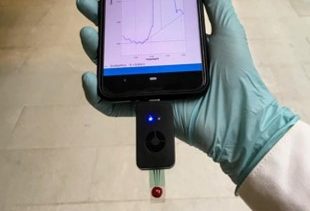
Canatu CNT -based electrochemical sensors for bedside blood concentration measurement progresses to clinical studies. The new point-of-use measurement enables real-time detection of analgesics from blood without extensive sample treatment, improving test result wait time, cost and convenience. See press release.

Finnish ecosystem spurs diagnostics development. Canatu will develop a new hybrid electrochemical sensor for target detection and drug concentration measurement. See press release.

Canatu creates nano solutions for massive impact. We work with carbon, the most versatile material in the universe, and collaborate with other forerunner companies to make breakthrough innovations. See our company.

Canatu partners with forerunner companies, research partners and a leading Finnish University Hospital, together transforming products for better tomorrows with nano carbon. See how we collaborate for an impact.

Canatu CNTs feature clean surface ensuring large contact with the analyte, and high electrical conductivity, contributing to strong signal and low detection limit. Discover unique properties.

